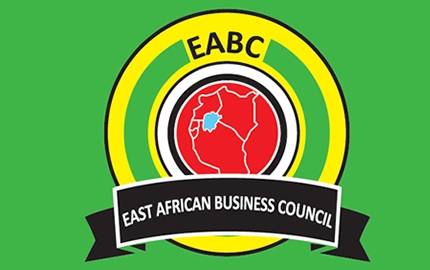
The East African Business Council, an umbrella organization of the private sector in East Africa, has been on the frontline of private sector involvement in the march toward economic integration in the region. The Council provides a platform for policy advocacy, business opportunities and business development promotion for members. ACBF’s assistance to the Arusha, Tanzania-based Council helped to finance a study aimed at deepening the private sector’s participation in East Africa’s economic integration. The overall objective of the project is to empower EABC to more effectively promote and influence the creation of a competitive business environment in the region. Besides, the project is intended to enhance human and institutional capacity of the Council, stimulate private sector growth, and expand the private sector’s participation and opportunities in regional integration.
Raising EABC’s visibility
A mid-term review of the project was conducted in May 2014. It revealed that significant successes have been recorded during the period covered. An evidence of this is the enhanced capacity of EABC to contribute to regional policy reforms. The reforms have themselves contributed to a better business environment in East Africa. In another vein, ACBF’s funded projects have contributed immensely to raising the visibility of the Council. The Council was empowered to produce brochures, quarterly magazines and banners which it distributed to the public in the five member countries through different channels in 2013. With the help of the publication, EABC has been able to make itself known to a broader segment of the region’s population. Business advertisements in the magazine also helped to promote members’ businesses, thus contributing to the growth of the private sector. Other than serving as a marketing tool, the magazine has become a source of internally generated income for EABC. The EABC’s website was even revamped and is being updated more regularly than in the past. This has made it possible for more people in East Africa and around the world to have access to relevant information on the region’s private sector players.
Boosting cross-border trade
Through a 2012 Consultative Dialogue Framework with the private sector, the East African Community (EAC) single custom territory, single tourist visa, removal of fees for work permits and improvement of port performance, especially Mombasa port, went into operation. Intra-region business in East Africa has been growing as seen in the rising export figures for each of the five countries in the grouping since 2010. EABC has succeeded in easing cross-border trade. Data on intra-regional trade has revealed that there has been an upturn in activities between 2010 and 2012. Import figures for each of the five countries have equally inched higher while exports from East Africa to the rest of the world have accelerated, too.
There is also evidence suggesting that partners and members of the Council are more than ever before appreciative of services offered by its secretariat. From the quality of its research reports and position papers, EABC has shown improved human resource capacity, according to the review. The growth in EABC’s internally generated funds is another positive impact. Also, private sector participation in the Council’s integration process has picked up momentum. The EAC Secretary General and the Chief Executive Officers of private firms are more increasingly engaging than previously. Perhaps most importantly, movement of people, goods and services is easier now more than in the past. This can be seen in the use of identity cards as legal travel documents in Uganda, Kenya and Rwanda, and the decrease of some non-tariff barriers like roadblocks.





